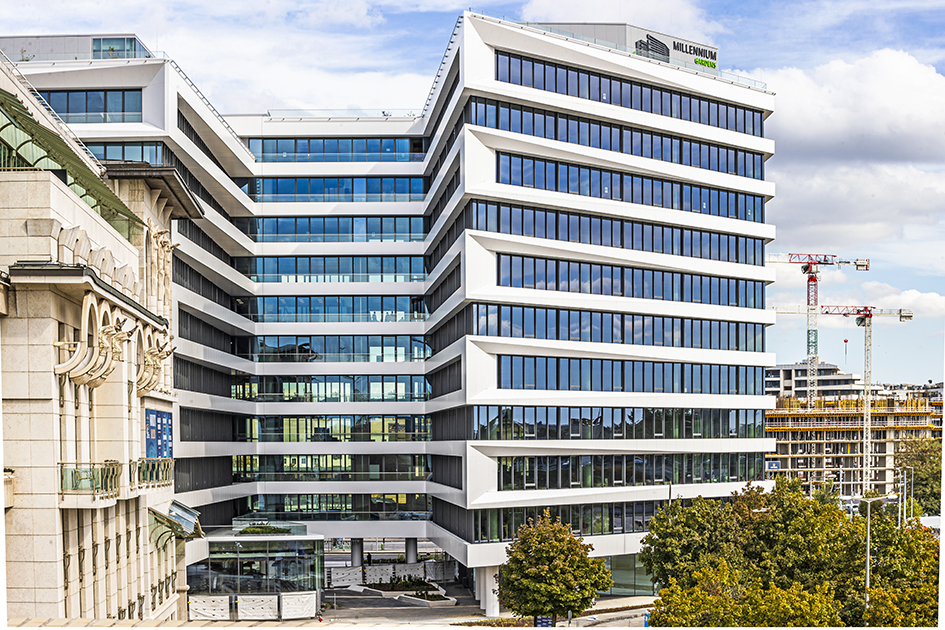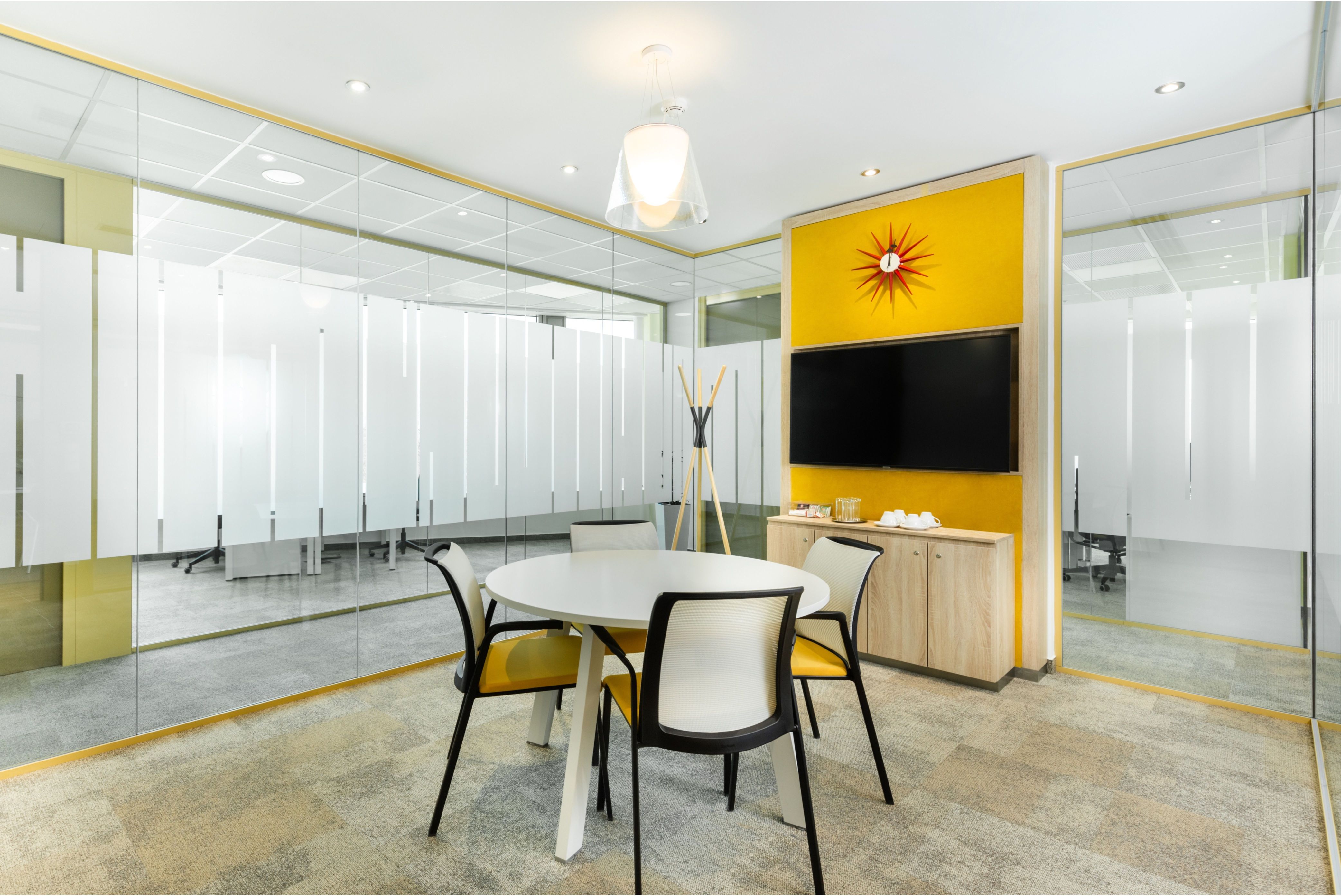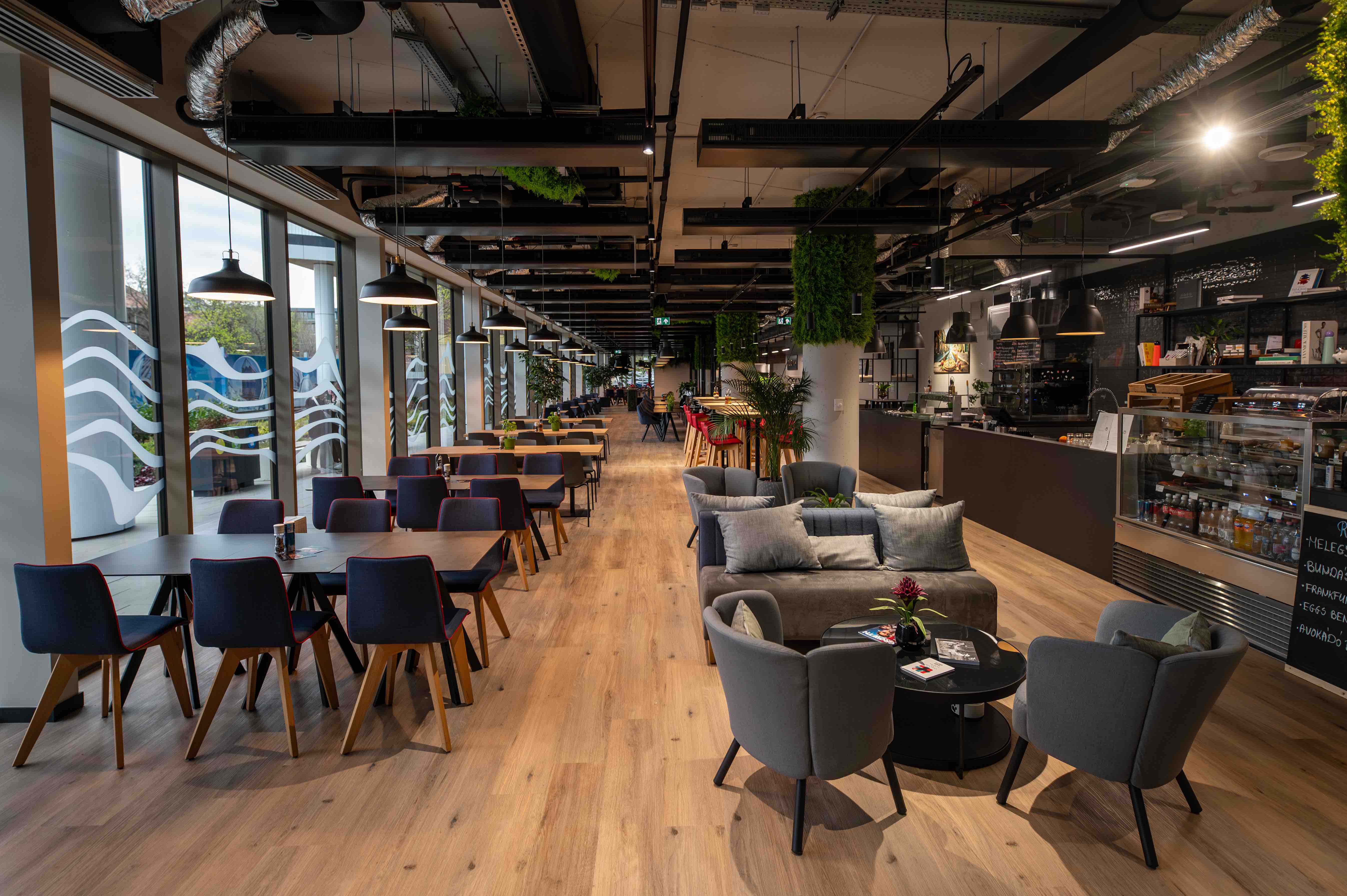Developments Delivered Amid Rising Market Concerns

The first phase of the Millennium Gardens office development by TriGranit has been handed over. It will constitute the final section of the mixed-use Millennium City project.
Although there are substantial pipelines in the office, logistics, and even the hotel markets in Hungary, questions remain about demand, the ability to source finance, the construction process, rising energy and labor costs, and the availability of an exit with a sale to an investor.
The various real estate sectors are being impacted by these issues to different degrees. All are also facing the challenges of the broader economic environment, including sentiment about Hungary as an investment destination due to the war in Ukraine, inflation, and the falling value of the forint.
There are several ongoing phased developments in the Budapest office market by established market players that are attracting substantial preleases, albeit the letting process is more prolonged, according to developers.
Atenor has concluded a 16,000 sqm prelease with E-On for the first phase of BakerStreet, due to be completed in the first quarter of 2024. A further 24,000 sqm phase of the project is due for completion late that same year. TriGranit has completed the 21,600 sqm first phase of the Millennium Gardens, with the project already more than 90% let, it says.
However, no new projects have been announced by the relatively small pool of international and local developers operating in Hungary, reflecting concerns over demand, the ability to conclude substantial preleases, and to source debt finance on favorable terms if needed.
The boom in industrial and logistics continues unabated, both in the Greater Budapest area and provincial hubs; the sector is an undoubted winner in the post-pandemic environment.
The first two warehouses developed by the industrial developer, HelloParks (established a couple of years ago and part of the Futureal Group), are now 100% occupied after a period of a few months, according to the developer. As a result, the company says that the total gross leasable area offered by the HelloParks portfolio will increase to 160,000 sqm by the end of the year.
Hotel Pipeline
A substantial hotel pipeline has been traced in Budapest by consultants, although there needs to be an element of caution here as several are on hold with no definite completion dates. However, hotel projects are being delivered with operators in place.
One such is the upper mid-scale, 123-room A52 Hotel Octogon in the historical center of Budapest, developed by CD Hungary and operated by the Continental Group. The luxury 71-room Radisson Collection Basilica has been completed and is due to open in a few months, opposite the tourist landmark of St. Stephen’s Basilica.
Futureal officially opened the 55,000 sqm Etele Plaza shopping center a year ago after a frequently postponed development process. It was the first Budapest mall delivery in several years, and no new centers are planned.
The retail sector faces the dual threat of e-commerce and concerns over the cost of living (and therefore spending power), a common theme across Central Europe, where few shopping centers have delivered in recent years.
Redevelopment is currently the central element for retail in Budapest as owners look to reposition their assets by updating the design and tenant mix. Multi Corporation has completed the EUR 18 mln refurbishment of the Allee mall, and developer-owners Wing and CPI have undertaken substantial redevelopments of their own respective retail assets.
Asset owners in the office sector now have to provide more highly specified, efficient and sustainable products offering flexibility in the provision of space to attract tenants and cater to staff needs in terms of amenities, location and transportation.
“PM [property management] and FM [facility management] came into focus during and post-COVID,” comments Tamás Ádány, business development director at Horizon Development. “Now, the record high energy prices put even more emphasis on proper PM and FM. Service charges and the quality of management are going to (or already have) become important factors in tenant decisions,” he adds.
Sustainability accreditation to the Breeam and Leed systems and increasingly the interior and staff health-oriented Well are the norm for a commercially successful development or standing asset in the office market that adheres to increasingly stringent sustainability regulations.
“On the one hand, regulations are stricter; on the other hand, and more importantly, tenants, investors, and banks (virtually everybody) puts sustainability on the top shelf. There is no future for non-sustainable new developments,” adds Ádány.
Energy Focus
Concerning the international energy crisis, energy efficiency accounts for 30% of the total points of Leed, and 20% of Breeam, according to Edina Hornok, head of the sustainability consultancy at the DVM group.
Such expectations are now extended to the industrial, hotel and retail sectors. In industrial, for example, a major concern of tenants is energy usage. HelloParks is developing the phased 354,000 sqm HelloParks Páty megapark close to Budapest.
The first “Big Box type hall” is being developed on 58,000 sqm in accordance with the sustainability requirements for “Outstanding” certification in Breeam’s “New Construction” category, says Rudolf Nemes, CEO of HelloParks.
At the end of the development cycle, building owners and developers need to adopt a longer-term sustainable strategy to have the option of an exit strategy with a sale to an investor.
“Investors need to think of their future exit; outdated assets are and will be more difficult to dispose of; therefore, the market is definitely shifting towards a more sustainable mindset,” comments Máté Galambos, leasing manager at Atenor Hungary. The company follows a policy of developing phased office projects and selling individual assets on to investors once completed and leased.
ESG and EU taxonomy reports are now expected to be part of the information pack by some investors when presented with an acquisition opportunity, says Benjamin Perez-Ellischewitz, principal at Avison Young Hungary.
In the current uncertain economic and financial environment, investors and vendors are adopting a wait-and-see attitude to investment, and the total volume for the year is not expected to be above EUR 1 billion.
The future is clear; developers will need to offer ever more well-conceived and sustainable products to gain finance, let and sell a property.
This article was first published in the Budapest Business Journal print issue of October 21, 2022.
SUPPORT THE BUDAPEST BUSINESS JOURNAL
Producing journalism that is worthy of the name is a costly business. For 27 years, the publishers, editors and reporters of the Budapest Business Journal have striven to bring you business news that works, information that you can trust, that is factual, accurate and presented without fear or favor.
Newspaper organizations across the globe have struggled to find a business model that allows them to continue to excel, without compromising their ability to perform. Most recently, some have experimented with the idea of involving their most important stakeholders, their readers.
We would like to offer that same opportunity to our readers. We would like to invite you to help us deliver the quality business journalism you require. Hit our Support the BBJ button and you can choose the how much and how often you send us your contributions.








